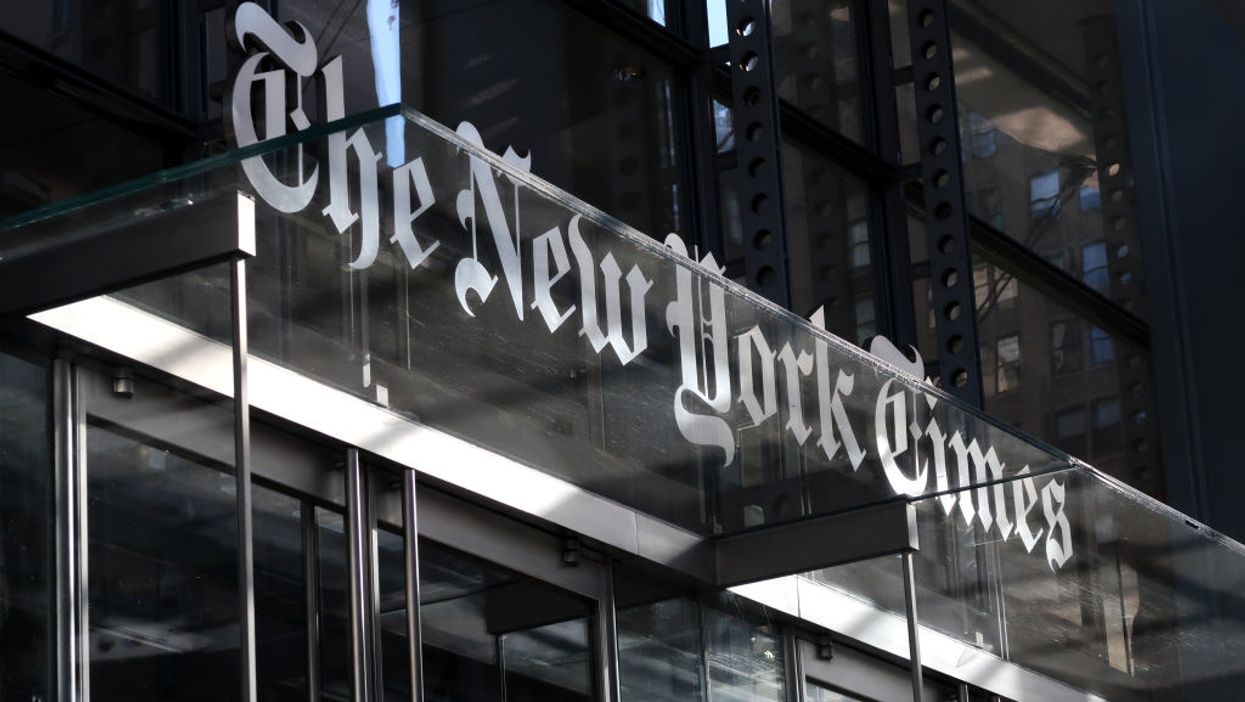
Gary Hershorn/Getty Images

Polling shows people of faith are likelier to practice social distancing than atheists and agnostics
An op-ed in the New York Times blames Evangelical Christians for paving the road to "coronavirus hell." In her article, contributor Katherine Stewart draws a parallel between 19th century advocates of slavery and religious Christians whose "denial of science and critical thinking," she says, "now haunts the American response" to the COVID-19 pandemic.
The article is riddled with a series of falsehoods that have little basis in empirical evidence but flatter the author's political biases and bigotry. For instance, Stewart accuses President Trump of having a "tendency to trust his gut" over the counsel of scientists and experts. Except Drs. Anthony Fauci and Deborah Birx have repeatedly said the nation's commander-in-chief has based all of his major decisions on their advice.
Stewart also writes:
Donald Trump rose to power with the determined assistance of a movement that denies science, bashes government and prioritized loyalty over professional expertise. In the current crisis, we are all reaping what that movement has sown.
Which science-denying movement is she referencing? Stewart only offers a handful of examples of Christian pastors continuing church services during the COVID-19 crisis, which, to be sure, contradicts the advice of public health experts, but is in no way representative of the vast majority of Evangelicals or people of faith.
In fact, polling data show that although most Americans are adhering to the government's social distancing guidelines, non-believers are the least likely to follow the measures.
According to a Morning Consult survey taken last week, 86% of Christians said they are practicing the recommendations, while 78% of agnostics and 80% of atheists said the same. To be clear, given the survey's margin of error, these are not significant differences, but it also demonstrates that for all her talk of "science denialism," Stewart's argument has little to no basis in research.
She also says that the Trump administration's political ideology is responsible for COVID-19:
It is fair to point out that the failings of the Trump administration in the current pandemic are at least as attributable to its economic ideology as they are to its religious inclinations. When the so-called private sector is supposed to have the answer to every problem, it's hard to deal effectively with the very public problem of a pandemic and its economic consequences.
An add contention, to be sure, considering the innovation coming out of the private sector that is driving our national response to the pandemic.
Perhaps even stranger is that Stewart scapegoats Evangelical Christians for subscribing to a philosophy of "limited government" as "a matter of theology." This is an odd accusation, to be sure, since the president and his administration are not generally seen as ideologically libertarian and only one out of five libertarians consider themselves part of the "Christian right."
Ironically, for someone who mocks Evangelical Christians and President Trump as operating on the basis of hunches, superstitions, and ideology, it is Katherine Stewart who disregards empirical evidence and research that challenges her pre-conceived notions.
This article's headline has been updated.